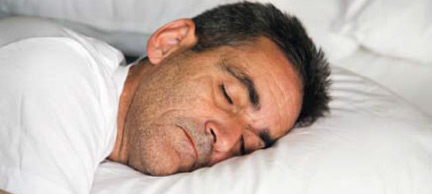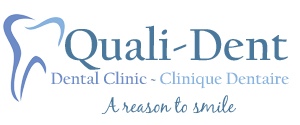Sleep Apnea
Losing More Than Zs
What is sleep apnea?
Sleep apnea is a serious, potentially life-threatening sleep disorder that affects approximately 18 million Americans. It owes its name to the Greek word apnea (meaning “want of breath”) and refers to episodes in which a person stops breathing for 10 seconds or more during sleep. With each episode, the sleeper’s brain briefly wakes up in order to resume breathing, resulting in extremely fragmented and poor-quality sleep. If you or your dentist suspects you suffer from sleep apnea or if you have been diagnosed with sleep apnea, your dentist can work closely with your physician to implement and manage a prescribed therapy.
What are the different types of sleep apnea?
There are two major types of sleep apnea, both of which can severely disrupt the regular sleep cycle.
Obstructive apnea: As you sleep, the muscles in the walls of your throat relax to the point where the airway collapses and prevents air from flowing into your nose and mouth, but efforts to breathe continue. This is the most common type of apnea.
Central apnea: Breathing interruptions during sleep are caused by problems with the brain mechanisms that control breathing.
What are the symptoms of sleep apnea?
People with sleep apnea usually do not remember waking up during the night. Indications of the problem may include:
- Morning headaches
- Excessive daytime sleepiness
- Irritability and impaired mental or emotional functioning
- Excessive snoring, choking, or gasping during sleep
- Insomnia
- Awakening with a dry mouth or sore throat
What’s the difference between snoring and sleep apnea?
Unlike mild snoring, individuals with sleep apnea stop breathing completely for 10 seconds or more, typically between 10 and 60 times in a single night. If your partner hears loud snoring punctuated by silences and then a snort or choking sound as you resume breathing, this pattern could signal sleep apnea.
Why is sleep apnea a concern?
Studies have shown that people with this potentially life-threatening disorder are so fatigued during the day that, when driving, their performance is similar to that of a drunk driver. If left untreated, sleep apnea can lead to impaired daytime functioning, high blood pressure, heart attack, and even stroke.
How can my dentist help?
If your dentist suspects you suffer from sleep apnea, he or she will refer you to a physician, often a sleep medicine specialist. Diagnosis and treatment is based on your medical history, physical examination, and the results of a polysomnography— an overnight sleep study, which measures heart rate and how many times breathing is interrupted during sleep.If you are diagnosed with sleep apnea, your dentist can work closely with your physician to implement and manage your therapy.
What are the treatment options?
If you have mild obstructive sleep apnea, initial treatment may include avoiding sleeping on your back, losing weight, or cessation of smoking. Dental appliances, such as the Thornton Adjustable Positioner ® (TAP®), which reposition the lower jaw and the tongue, have been helpful to some patients with mild sleep apnea.
If you have severe sleep apnea, continuous positive airway pressure (CPAP) systems are a commonly prescribed therapy. CPAP delivers air through a small mask that covers the nose, and the constant pressure keeps the airway open, which prevents both snoring and episodes of apnea. For patients who have trouble tolerating CPAP, other treatments, including surgery, can eliminate sleep apnea symptoms.
www.knowyourteeth.com
Brought to you by the AGD, this Web site answers important dental health questions, offers the latest information on current treatments, provides tips for first-rate oral hygiene, and can help visitors find highly qualified general dentists near where they live.
1.877.2X.A.YEAR
AGD’s toll-free referral number. Call to locate an AGD member dentist in your area.
Published with permission by the Academy of General Dentistry. © Copyright 2009 by the Academy of General Dentistry. All rights reserved.
